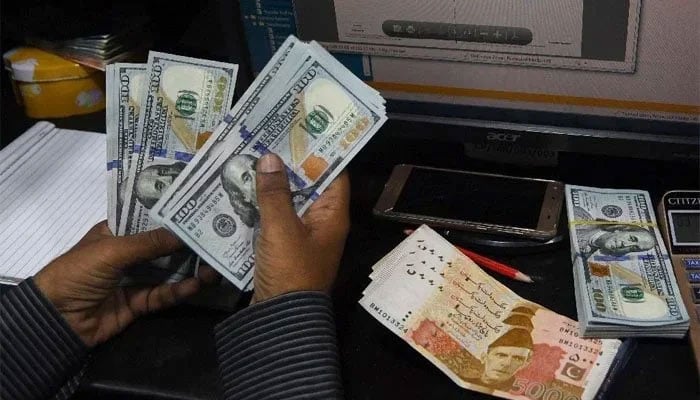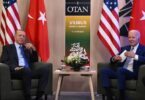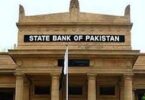KARACHI (Monitoring Desk) : The rupee continued its relentless downward march against the US dollar on Wednesday with the local unit losing Rs5.16 in interbank trade.
The rupee nosedived to an all-time low of Rs290 surpassing its previous low of 288.42 registered on April 11.
The local unit lost ground after Pakistan Tehreek-e-Insaf (PTI) Chairman Imran Khan was taken into custody a day earlier on charged of involvement in Al-Qadir Trust case.
Samiullah Tariq, head of research at Pakistan-Kuwait Investment Company, told Geo.tv that uncertainty regarding the International Monetary Fund (IMF) and increasing political uncertainty is impacting exchange rate.
“The rupee-dollar parity doesn’t seem linked to the actual supply and demand of dollars,” he maintained.
Head of Research at Arif Habib Limited Tahir Abbas shared that there was “pressure” on the rupee because of the “changing political situation”.
“It is expected that political instability will delay the IMF deal,” said Abbas, adding that the lender two to three days ago had also said that when Pakistan will fulfill its external financing gap then the Staff Level Agreement will be signed.
“I think there is pressure on rupee after the event that happened yesterday and IMF statement. Today the pressure is specifically due to political instability,” said Abbas.
A day earlier, Moody’s Investor Service warned that without an IMF programme Pakistan could default as its financing options beyond June are “uncertain”.
“We consider that Pakistan will meet its external payments for the remainder of this fiscal year ending in June,” sovereign analyst with the ratings company in Singapore Grace Lim was quoted by Bloomberg.
“However, Pakistan’s financing options beyond June are highly uncertain. Without an IMF programme, Pakistan could default given its very weak reserves.”
Rising political tensions ahead of elections due this year are adding to the risk of a delay in the loan, as former prime minister Imran Khan is showing no signs of backing down against the government.
The coalition government is struggling to revive a $6.5 billion IMF bailout programme, which had stalled after the government failed to meet some loan conditions.
“An engagement with the IMF beyond June would support additional financing from other multilateral and bilateral partners, which could reduce default risk,” Lim, in an emailed response to questions, said.
According to S&P Global Ratings, Pakistan’s gross external financing needs as a proportion of current-account receipts plus usable reserves is estimated to rise to 139.5% in fiscal year 2024 from 133% in 2023.
“We consider the IMF programme to be a foundation for important fiscal policy reforms,” said Andrew Wood, a sovereign analyst at S&P in Singapore.







